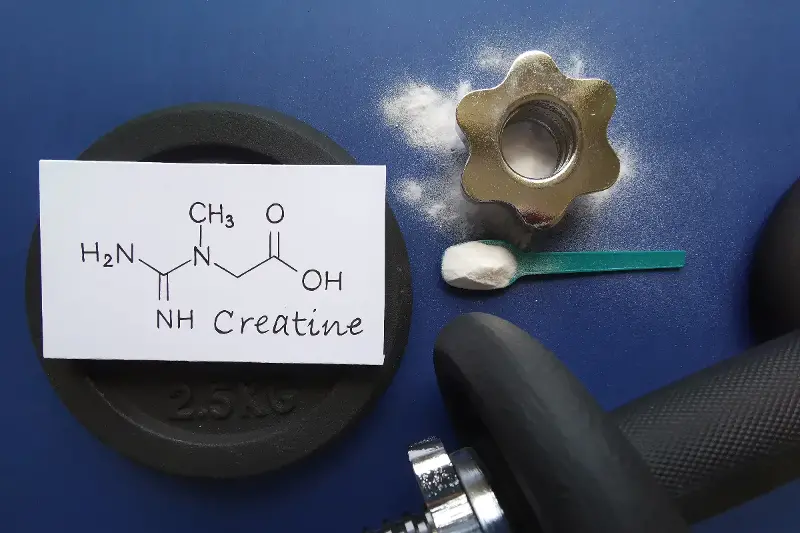Walk into any gym these days, and you’re likely to overhear someone enthusiastically touting the benefits of creatine. From novice lifters to seasoned athletes, creatine has become the buzzword in fitness nutrition. But why has this simple compound created such a frenzy among fitness gurus, especially in the health-conscious communities of Southeast Asia? Is it truly the miracle supplement it’s cracked up to be? Let’s pull back the curtain on the creatine craze.

What Exactly Is Creatine?
Creatine is a naturally occurring compound found mainly in our muscles and, to a lesser extent, our brain. We get small amounts from foods like red meat and fish, but the body can also produce it from amino acids. In the world of sports and fitness, creatine is typically consumed as a supplement—most often as creatine monohydrate—in powder or capsule form.
What makes creatine particularly interesting is how it functions at a cellular level. It helps your cells regenerate adenosine triphosphate (ATP), the primary energy currency of the body. In practical terms, this means you have a little more gas in the tank for high-intensity activities, whether it’s sprinting, lifting weights, or smashing a set of burpees.
Why Are Fitness Gurus Obsessed?
The simple answer: it works. Decades of research have shown that creatine can increase muscle mass, improve strength, and enhance recovery. For anyone serious about their fitness journey, these are pretty irresistible benefits. Fitness influencers and personal trainers rave about its ability to help “push that extra rep” or break through stubborn plateaus—claims that are largely backed by science.
Unlike many supplements that seem to offer hope in a bottle, creatine’s results are measurable. A 2021 study published in the Journal of the International Society of Sports Nutrition found that individuals who supplemented with creatine saw significant improvements in both upper and lower-body strength compared to those on a placebo. This has made it a staple in the gym bags of both men and women aiming for those lean, strong physiques.

Breaking Myths: Not Just for Bodybuilders
One common misconception is that creatine is only for hulking bodybuilders or elite athletes. Not true! In recent years, the appeal has broadened. More women and “everyday athletes” are reaching for creatine to aid in everything from yoga to HIIT workouts. While it’s especially useful for explosive, short-duration activities, its benefits don’t exclude recreational users.
Moreover, emerging research hints that creatine might have roles beyond muscle. Studies are underway to examine its potential in boosting brain function, improving mood, and even supporting healthy aging. While these findings are early, they add extra intrigue to creatine’s already sparkling reputation.
Is It Safe? What About Side Effects?
“Is creatine safe?” is one of the most-Googled questions about the supplement. The reassuring news: decades of studies have shown that creatine is one of the safest and most well-researched fitness supplements available. The most common side effect is mild water retention (that “puffy” feeling some users notice early on), which typically fades after continued use.
Very high doses might upset your stomach, so it’s wise to stick to the recommended 3-5g per day. There is no credible scientific evidence linking standard creatine use to kidney or liver problems in healthy individuals. Of course, if you do have pre-existing health conditions, it’s always smart to have a chat with your doctor first.

How to Use Creatine: Tips for Success
If you’re considering hopping on the creatine bandwagon, it’s refreshingly straightforward. Most people skip the old-fashioned “loading phase” of super-high doses, opting instead for a steady daily intake of 3-5g. Timing isn’t critical, but many find it convenient to take creatine with their post-workout meal or protein shake.
Because creatine draws more water into your muscles, staying hydrated is especially important—perfect for the humid climates of Southeast Asia! Drink plenty of fluids to support your system and maximise creatine’s benefits.
Is Creatine Worth the Hype?
For anyone looking to gain muscle, boost performance, or speed up recovery, creatine truly does live up to much of the excitement. It’s affordable, widely available, and—unlike many supplements—backed by robust scientific evidence. While it’s no substitute for hard work or balanced nutrition, it can help you squeeze a little more out of every workout.
Of course, no single supplement fits every person or every goal. The best results always come from a holistic approach: a balanced diet, consistent exercise, and listening to your body. But if you’re looking for a simple, proven way to give your fitness routine a lift, creatine might just be the secret weapon you’re searching for.
In the fast-evolving world of health and nutrition, creatine’s popularity doesn’t appear to be slowing down. So next time you see someone mixing up a white powder at the gym, remember: it’s not magic—it’s just great science.
